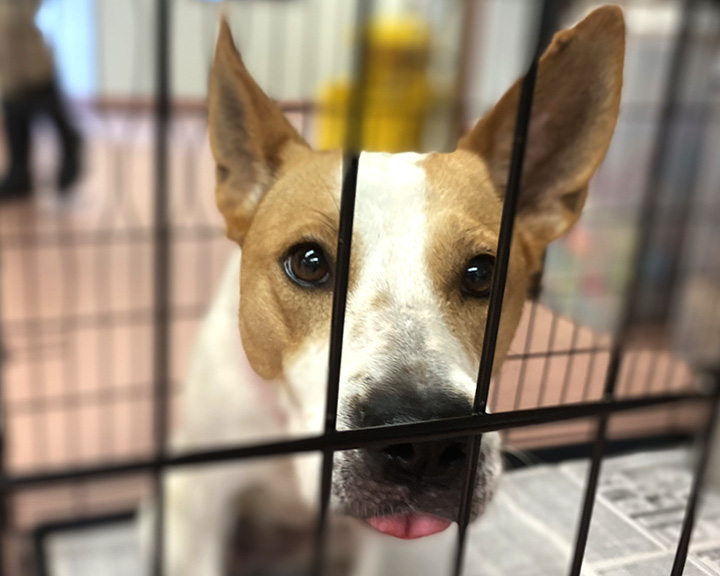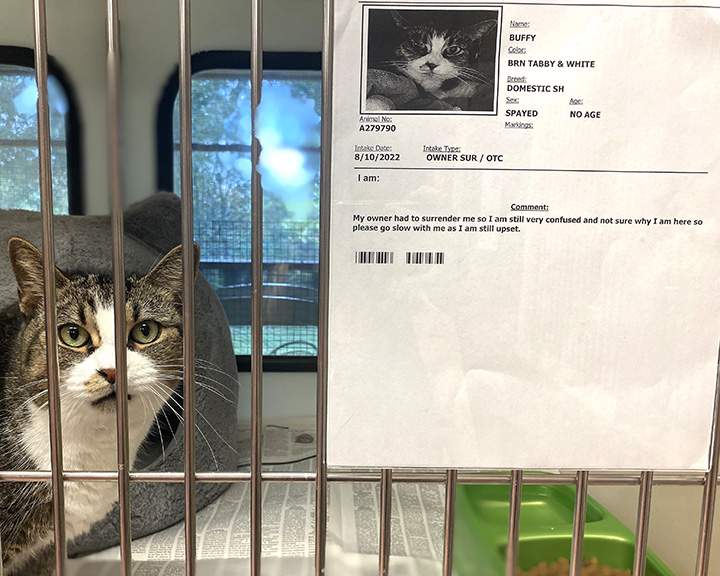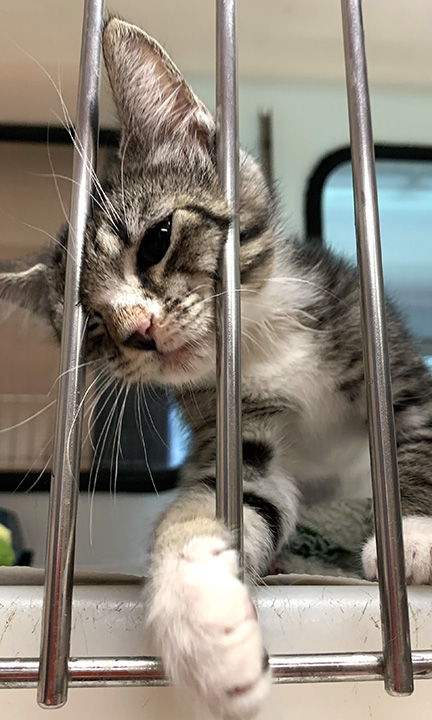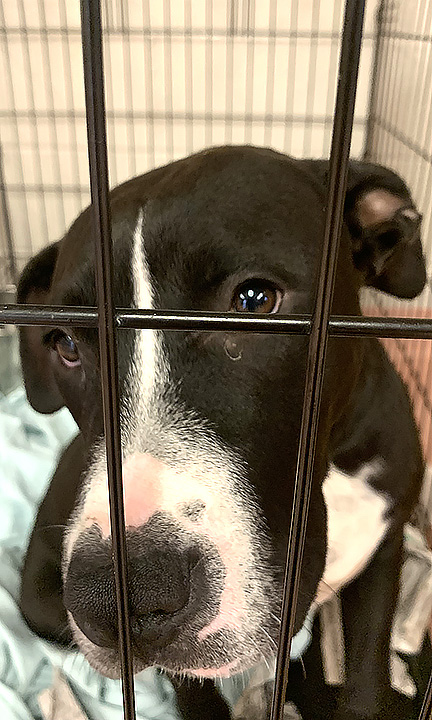A father and his daughter looked through the cages of kittens at City of Columbia Animal Services for the Clear the Shelters event. Photo by: Kaylie Pomichalek
Columbia animal shelters are overcrowding once again. But it’s not because more pets were returned post-pandemic, despite what many local and national reports have said.
It’s a more complicated issue.
The animal population surged while COVID-19 limited veterinary services such as spaying and neutering. And abuse cases sometimes went unchecked due to law enforcement staffing issues. Now, shelters just can’t find adoptees as fast as animals are coming in.
Nationally, populations are up 7% so far this year from 2021, but adoptions are only up by 2%, according to the latest information from the Shelter Animals Count organization.
“Specifically in South Carolina … a lot of shelters are getting hit with an increase of cruelty and neglect cases,” said Gina Burrows, regional strategist with Best Friends, a nonprofit working with local shelters to save animals. “And now we’re seeing that increase in unwanted litters.”
The state’s lack of effective cost of care adds to the problem, according to S.C. Humane Society Director Janelle H. Gregory.
Under state law, animals seized during abuse investigations are held in shelters throughout the pending cases, she said. This typically lasts about two years, which requires a lot of money and space.
“It’s really creating a bottleneck of sorts for animals getting stuck in the sheltering system,” Gregory said.
Sometimes, shelters are so full that law enforcement has to leave animals where they are found.
Recently, a man in Greer was arrested on 12 counts of first-offense, ill-treatment of 58 dogs, according to Spartanburg County officials.
The dogs were underweight. Some had skin conditions or open wounds. Many of the pens were covered in feces, with dirty water or no water at all.
Most of the animals were taken to Greenville County Animal Care. But some were healthy enough to be left on the property, monitored weekly by law enforcement.
“It really prevents law enforcement from being able to effectively police animal issues,” the Human Society’s Gregory said. “Shelters don’t have the capacity to handle the influx of the massive intake.”
Shelters, once they have taken in the animals, have a different decision to make. If an animal isn’t considered adoptable, shelters often must euthanize.
Overcrowding complicates things.
“The biggest thing is whether or not you’re euthanizing for space,” said Victoria Riles, the superintendent for Columbia’s animal services. “Right now, we have been very fortunate … because our community has been so responsive to our programs and our events.”
So far, the city hasn’t had to resort to euthanasia to address overcrowding, she said. The shelter holds free adoption events throughout the year when it begins to reach capacity.
In August, the city participated in Clear the Shelters. The national, annual event waives adoption fees to minimize overcrowding.
“We’ve probably done about 150 adoptions” under that program, Riles said. “We would call that a success.”
For more adoption information visit:
https://animalservices.columbiasc.gov/adoption/
Brown and white dog looks through his crate’s bars at visitors in the City of Columbia Animal Shelter. Photo by: Reagin von Lehe
Buffy the tabby cat meows at new visitors next to a kennel card with her details. Photo by: Reagin von Lehe
A tabby kitten reaches towards potential adopters at the City of Columbia Animal Services. Photo by: Kaylie Pomichalek
A black and white dog peers up at visitors as they walk through the City of Columbia Animal Services. Photo by: Kaylie Pomichalek
ABOUT THE JOURNALISTS
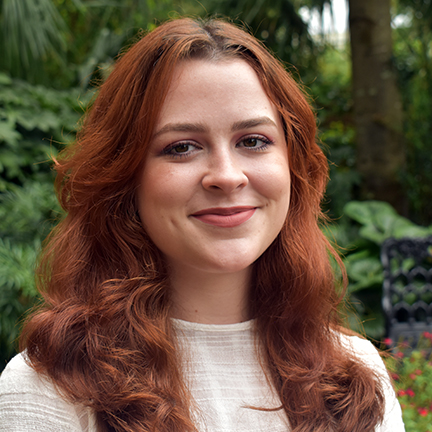
Reagin von Lehe
Von Lehe is a journalism major with an art studio photography minor at the University of South Carolina. As an avid film buff, amateur astrologist and fantasy literature enthusiast, she tends to lean towards Arts and Culture writing. Her portfolio ranges from movie reviews to a story about a mother who diagnosed her own child with a rare, lifelong disability. She’s nosey, but finding other people’s business fascinating makes her a strong interviewer and feature writer.
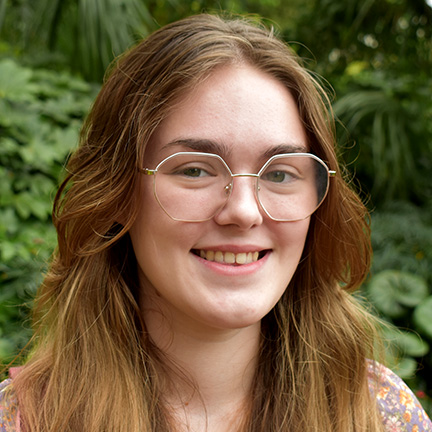
Kaylie Pomichalek
Pomichalek studies journalism at UofSC. She is from Sumter, S.C. and has five cats. She is interested in covering social issues, her most recent story being the education disparity and poverty Native Americans experience in South Carolina. Her dream job is to be a travel journalist. One place she is interested in visiting is Hawaii to cover the ways colonization has impacted the native culture.


